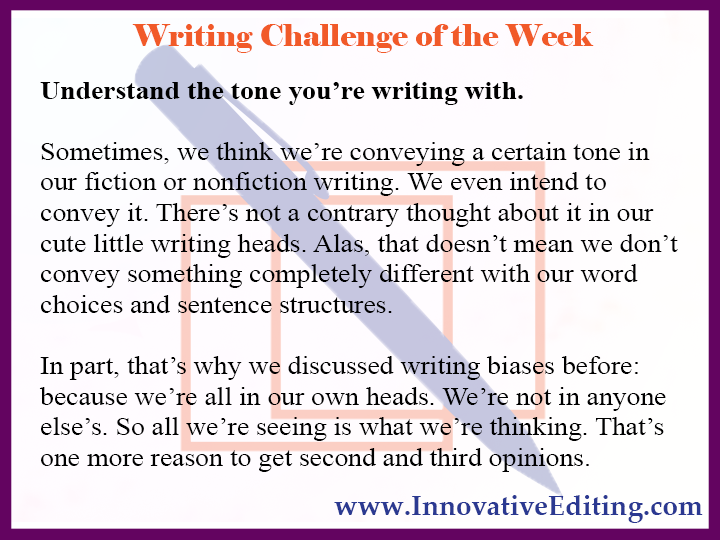
So we now know that literary tone is important. Very important. It can make or break a manuscript’s prospects or a book’s sales.
If someone doesn’t like the literary tone of a novel, they’ll put it down. Therefore, if you want to lessen that risk, you’ve got to play nice.
When it comes to nonfiction, some writers make a whole entire living off their unpleasant authorial tones. There’s money to be made in harsh, forceful, exceptionally direct, mean, snippy, caustic, derogatory, pretentious, and/or sacrilegious word choices, word arrangements, and other such displays of attitude.
Personally, I don’t often get the appeal. But to each their own in nonfiction.
It’s a little less advised with novels though. The reason why probably has something to do with nonfiction books featuring very blatantly laid-out themes targeted to very specific audiences… or against them.
For example, Neil deGrasse Tyson’s Astrophysics for People in a Hurry is written with a derogatory tone against Christians. But his targeted audience is filled with atheists and agnostics. Therefore, he’s preaching to the non-church choir and doesn’t risk losing his base or their money.
Novels, however, have to be much more inclusive because they’re read first and foremost as entertainment. Again, if they want to sell.
Being pleasant can be rather problematic for people who are always coming from their own perspectives. Namely everyone.
Here’s why…
Understand the tone you’re writing with.
Sometimes, we think we’re conveying a certain tone in our fiction or nonfiction writing. We even intend to convey it. There’s not a contrary thought about it in our cute little writing heads. Alas, that doesn’t mean we don’t convey something completely different with our word choices and sentence structures.
In part, that’s why we discussed writing biases before: because we’re all in our own heads. We’re not in anyone else’s. So all we’re seeing is what we’re thinking. That’s one more reason to get second and third opinions.
Remember: Biases are unavoidable to some degree. We’re always going to have them, no matter how hard we try not to.
I’d love to say that’s not the case with tone, but sorry.
Better luck next time.
Here’s three things to remember from this post:
Literary tone is important.
Every writer has a literary tone they can work on cultivating.
Every reader has the ability to interpret literary tone, and they might not always take it the way you meant it.
Actually, correction on that last one. They definitely won’t always take it the way you meant it. And to some degree, you’re just going to have to be okay with that.
There are oversensitive people out there, and even non-oversensitive types have bad days now and again. You can’t stop every person having a bad day ever from reading your published work.
All you can do is try your best to come across in as marketable a way as possible to as many people as possible. Which means you should get pre-publishing feedback from as many honest, caring people as possible who can critique your literary tone.
I know I’ve said that dozens of times by now: Get a second opinion. Get a second opinion. Get a second opinion. Blah blah blah. Chirp chirp. Beep beep.
But I’m only repeating it because it’s true. And important. For all I know, you might have a great grasp on your literary tone.
Or you might not at all.
Either way, you won’t know until you ask.

